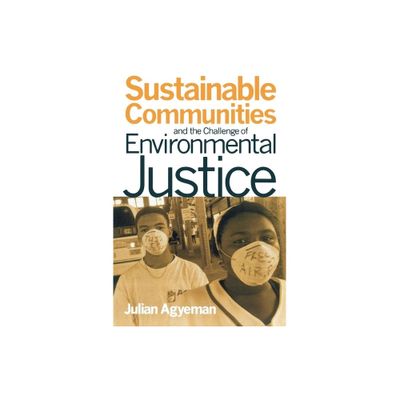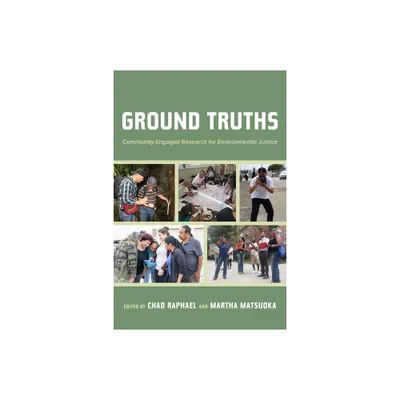Home
Ground Truths: Community-Engaged Research for Environmental Justice
Loading Inventory...
Barnes and Noble
Ground Truths: Community-Engaged Research for Environmental Justice
Current price: $34.95


Barnes and Noble
Ground Truths: Community-Engaged Research for Environmental Justice
Current price: $34.95
Loading Inventory...
Size: Paperback
*Product Information may vary - to confirm product availability, pricing, and additional information please contact Barnes and Noble
A free ebook version of this title is available through Luminos, University of California Press’s Open Access publishing program. Visit www.luminosoa.org to learn more.
This is the first book devoted entirely to summarizing the body of community-engaged research on environmental justice, how we can conduct more of it, and how we can do it better. It shows how community-engaged research makes unique contributions to environmental justice for Black, Indigenous, people of color, and low-income communities by centering local knowledge, building truth from the ground up, producing actionable data that can influence decisions, and transforming researchers’ relationships to communities for equity and mutual benefit. The book offers a critical synthesis of relevant research in many fields, outlines the main steps in conducting community-engaged research, evaluates the major research methods used, suggests new directions, and addresses overcoming institutional barriers to scholarship in academia. The coauthors employ an original framework that shows how community-engaged research and environmental justice align, which links research on the many topics treated in the chapters—from public health, urban planning, and conservation to law and policy, community economic development, and food justice and sovereignty.
This is the first book devoted entirely to summarizing the body of community-engaged research on environmental justice, how we can conduct more of it, and how we can do it better. It shows how community-engaged research makes unique contributions to environmental justice for Black, Indigenous, people of color, and low-income communities by centering local knowledge, building truth from the ground up, producing actionable data that can influence decisions, and transforming researchers’ relationships to communities for equity and mutual benefit. The book offers a critical synthesis of relevant research in many fields, outlines the main steps in conducting community-engaged research, evaluates the major research methods used, suggests new directions, and addresses overcoming institutional barriers to scholarship in academia. The coauthors employ an original framework that shows how community-engaged research and environmental justice align, which links research on the many topics treated in the chapters—from public health, urban planning, and conservation to law and policy, community economic development, and food justice and sovereignty.


















